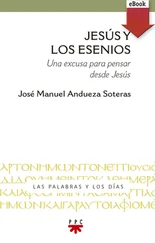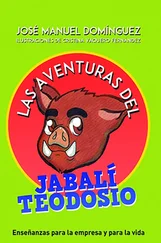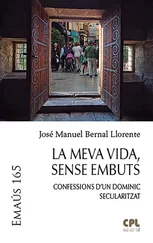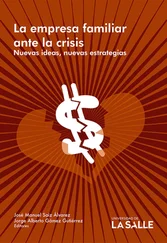A man, a giant, an immensely lucky man, whom I’d all too quickly dismissed as merely vulgar but who had the two most incredibly beautiful women, manufactured to conform precisely to the very latest prototypes for beautiful women, all the falsity of technology incorporated into their gleaming bodies. Calculated to make any man tumble and fall into them. My God, I said to myself: a goddess!
6
Psellus, I thought. I’d prefer that you call me Psellus, though my name is something else, as you know. But from the eyes of Michael Psellus, from that sphere, I will follow you with the diaphanous gaze of a sublime pedagogue, my hand on your head, feeling the Book’s knowledge pass into you, seeing how you claim it for yourself, Petya. So that if this civilization with its exquisitely tiled bathrooms and your parents’ solid gold faucets were to cease to exist and only my lessons, my readings of the Book, were preserved, these days could still be recuperated, the echo of my words holding fast in you like inclusions in amber.
You and me, beneath the slow spin of that spherical surface: you listening, me speaking to you. Fragments of the Book, commentary on its passages, floating around us, emerging from my lips, traveling through the air to you, your concentrating face perfectly visible. Blue letters unfurling across the floor, on your clothing, on the courtyard’s paving stones, as the sphere turns and the text moves slowly up its walls.
1
Neither a book whose infinitely thin pages contain whole libraries in a single volume nor a library made up of rhomboidal chambers where men — librarians — worship the books, venture on long peregrinations, interrogate abstruse combinations of letters, or are thrown into the void to die, etcetera. (Which, by the way, is a rather mechanistic simile now quite outmoded, a compression of the concept of a library). I’ve come up with something entirely different: a circumference whose radius is infinite, a spherical construction, a bibliosphere that has its Ptolemaic center in every reader and makes room between its thin walls (no thicker than a page of the Bible) for all books, including this one, and all commentaries upon them.
Though yes, strictly speaking, the commentary on a single book would suffice … But how can I describe or depict my distress, my despair, when I came back from Torremolinos to discover that someone had profited from my absence by destroying the Book, stripping me — or so I believed — of the source of my knowledge and pedagogical skill.
“What? The Book? Burned?”
“Burned … Destroyed by fire … But forget about that … First …”
“I know you’re listening to me right now, Batyk; you haven’t stopped spying on me for one second since I got here.” Though never visible in the garden when I’m talking to the child, talking to you, Petya, Batyk always knew — I’d gathered from his way of retorting to things I’d never said to him — what passages we’d touched on, what subjects we’d covered on a given day in April or March (the subject of gravity, for example, so important) and the precise words we’d used. Until, overwhelmed by the force and wisdom and undeniable beauty of the Book, he conceived of doing away with it, depriving me of this public — not secret: public! — source of my power and pedagogical erudition.
The day I came back from that trip, Petya, knowing exactly where in the Book to find a passage about your mother’s nervous collapse: the words of Cottard, the family doctor, words that would allow me to read the fear in her eyes correctly. I went up to my room for the Book and my fingers, fanning out wide, found nothing, probed only emptiness on my night table, and my eyes registered only emptiness. Without my ever imagining for a moment anything along the lines of: you in short pants and suspenders like a child from a bygone era, stopping in your tracks on your way to the Nintendo, then proudly turning your back on it, retracing your steps, pulled back, by my months of effort, to the Book.
I found in my mind a miniature representation of what must have happened, a replica of the passage, in the Writer, where a sultan approaches the mystery of a table and beholds a seeming chessboard on which small wooden effigies are arranged. And then, to his surprise, he perceives that they are all in motion: the horses prancing and curveting, the warriors brandishing their scimitars, the half moons of their helmets gleaming. And he sees it all from the surprised distance of his eyes, with a faint sound of drums and trumpets and the clanging of arms. Which was how I saw the Buryat lurking along the stretch of wall between your door and mine, his hands interlocked at his forehead, listening to passage after passage, sentence after sentence, and registering an important fact I’d mentioned in one of my classes: the combustion temperature of paper is 451 degrees Fahrenheit. Why Fahrenheit, though, when the Writer would have used Celsius, making it 232.77 degrees? I don’t know, don’t know. But Batyk understood and schemed what he would do to my copy of the Book at the first opportunity. Which did not take long to present itself during my two-day absence — and without your doing anything, Petya, to save it. To save the Book.
My outstretched fingers found nothing but air on the little table and only closed, hours later, on a blackened oval of stiff paper lying in the hedge next to the pool bar. The pages had been torn out one by one and consumed by the flames without a trace, while the harder and more flame-resistant material of the cover, the calfskin, was only charred along the edges.
I studied that cinder for a second, not a trace of the title’s gilded letters at the center, nothing to signify the Book, the name of the Writer, the cursive of his signature. I understood immediately what the Book’s fate had been and flung the cover away from me with a movement of the wrist, just as I throw the Frisbee to Almaz, the borzoi.
And it rose through the night to the back of the garden; it rose, caught and propelled by the turbulence its very advance and rotation were generating, and sailed neatly over the wall. Impossible now for me to walk into the house with that black cinder and throw it in the face of the Buryat, who would pale, etcetera. A cackle of laughter or the air that could have erupted into a cackle of laughter filled my chest without my actually laughing into the night, only my eyes: HA! And I turned around to present my face and my laughing eyes to the lights of the house, for at the moment the wafer of the Book went flying off into the night, my eyes had seen an illuminated stele of light advancing toward me through the air. Without any laborious searching, I’d come up with a passage from the Book about wild laughter. This one: He picked up the turban and put it on all different ways until — oh wonder of wonders! — when he looked at himself in the mirror, he had disappeared! He gave the turban another spin and there he was in the mirror again. He turned it again and disappeared. He took it off and could see himself in the mirror. Then he burst out in peals of wild laughter, bellowing, “All glory to Chernomor and his turban! Terror begone! May joy return to my heart!”
2
Allow me to stress this point: I suspected nothing. I hadn’t seen it coming, never imagined it for a moment. Ersatz diamonds. There was nothing to foretell it, nothing in the Writer to help me understand. A subject unworthy of him, a matter to which he would never have devoted a sentence, not even as a joke, an exercise: never! The manufacture of ersatz diamonds, the double cross an ersatz diamond inevitably and almost automatically places in the soul of its creator: would such a subject occur to a gentleman? Would a gentleman devote himself to the manufacture of ersatz diamonds? Would a courteous young man — myself, for example — ever wonder for one second whether the diamonds his employer’s wife, a beautiful woman with exquisite manners, had placed in his hands as payment for his educational efforts were in fact ersatz? Never. There are things about which it’s best not to think, things upon which a limpid and upright soul never dwells. Allow myself to be invaded by your father’s hammered gold chains and ruffian manners, the way the bottoms of his trousers swept his shoes as he walked? To what end? Toward what objective?
Читать дальше












